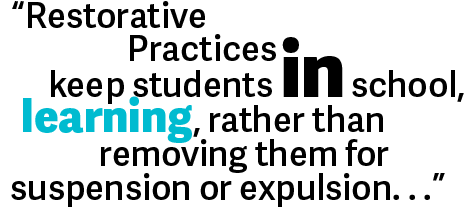Professional Development

How to be a Purposeful and Responsive School Leader
These sessions are designed for district level leaders as well as school based leaders. The sessions are interactive and help create a climate and culture of respect and equity. They are designed to build capacity of all staff. It is based on collaboration, consistency, communication and connecting everyone to the mission of organization excellence. This creates an environment of trust based on being honest and addressing the underlying issues that develop in systems.

Increasing Academic Rigor in the Classroom
These sessions are designed for school based administrators and teachers and assist them in creating classrooms where tier 1 instruction is paramount. The sessions allow school based staffs to establish PLC’s and teams that all function at their highest possible level. It focuses on creating helping staffs create higher order thinking questions and allows the instructional staff to help students develop critical thinking skills.

Providing Effective Feedback
These sessions are designed to move the district and/or school based leaders form evaluators to instructional coaches. These sessions increase the capacity of all staff to give feedback that improves performance of each individual in the organization.





Summative and Formative Assessments that Work
These sessions are designed to help district and school based leaders create assessments that give consistent data, while not overwhelming students with an excessive amount of standardized assessments. These sessions allow staffs to make decisions based on data analysis and interpretation and they allow district leaders and school based leaders to empower their staffs and builds capacity.
Restorative Practices
Restorative practices is a framework used to resolve conflict and address harm and to hold the student accountable while problem-solving collaboratively to repair harm. School districts have found that this practice has significantly worked to reduced suspensions and expulsions as a result of incorporating this practice in their schools. Students being able to talk things out and process their behavior has allowed them to see how their behavior affects others and themselves. They take part in the decision-making process to repair harm in lieu of or with any consequences given. More likely than not, students are able to change their behavior and learn to self-regulate.
Teaching the Reluctant Learner
This powerful workshop will jump-start and engage your reluctant learners in the classroom! It’s simply a matter of establishing positive teacher/student relationships through powerful and positive words. Participants of this workshop will learn how to create positive relationships with reluctant learners which leads reluctant students freely engaging in daily learning activities in the classroom. Grades and test scores of reluctant learners will increase, which will lower retention rates of these students. Participants of this workshop will also experience how creating positive relationships through powerful and positive words decreases inappropriate behavior of reluctant learners and also raises the self esteem of reluctant learners, henceforth providing a positive climate in the classroom. This workshop is filled with lively interactive discussions, powerful quotes from celebrities, role-plays, handouts and tokens of appreciation for participants!
Cooperative Discipline
Cooperative Discipline is an excellent Behavior Management System that promotes and fosters positive teacher/student relationships and highlights students’ choices and options for learning. Cooperative Discipline was created by Dr. Linda Albert with solutions for classroom disruptions and school violence. Cooperative Discipline offers over one hundred preventive and intervention strategies, which will work for participants as soon as they are used with students. This workshop helps participants identify five major reasons for student misbehavior. Participants will leave with the overall understanding of the 3C’s; Capable, Connecting, and Contribute, which are the cornerstones for all student achievement in Cooperative Discipline. Activities included in this workshop for participants are lively interactive discussions, learning videos, role-plays, fun assignments, and access to the Cooperative Discipline textbook for personal use.
Increasing Student Engagement
Research has made a connection between student engagement and student achievement. Students who are engaged learn more and attend better to the instructional activities. However, today’s student brains are different than in past generations. They have been raised in a fast paced society with technology and multi-media devices and are often bored by traditional lecture-based learning.
Engagement requires that students be attentive and be committed to the task assigned. As educators, our goal is to have students who not only complete the tasks assigned but also complete them with enthusiasm and an excitement for learning. In this session, participants will actively engage in learning about recent brain-based research and how it can be used to promote student engagement and maximize student learning in the classroom.
Participant objectives for this workshop include:
1. Review of brain-based research as it relates to attention, learning and retention.
2. Examine how the adolescent brain differs from the adult brain.
3. Demonstrate a variety of exercises and instructional strategies that promote high level student engagement at every level.


Instructional Audits
Instructional audits are designed to assist school based administrators calibrate with their teachers around the instructional expectations in the classroom. The purpose is to gauge the level of rigor, examine student objectives to ensure that they are measurable and aligned to the activities and assessments are created to measure exactly what was taught.
District-Wide Diagnostics
Instructional audits are designed to assist school based
District-wide diagnostics are designed to give district leaders a global picture of teaching, learning , culture and climate within their districts. We also provide written feedback and recommendations based our individual analysis, evaluation, interpretation and strength-based solutions. Evidence based observations have proven to be effective and efficient in achieving organizational tasks and goals.